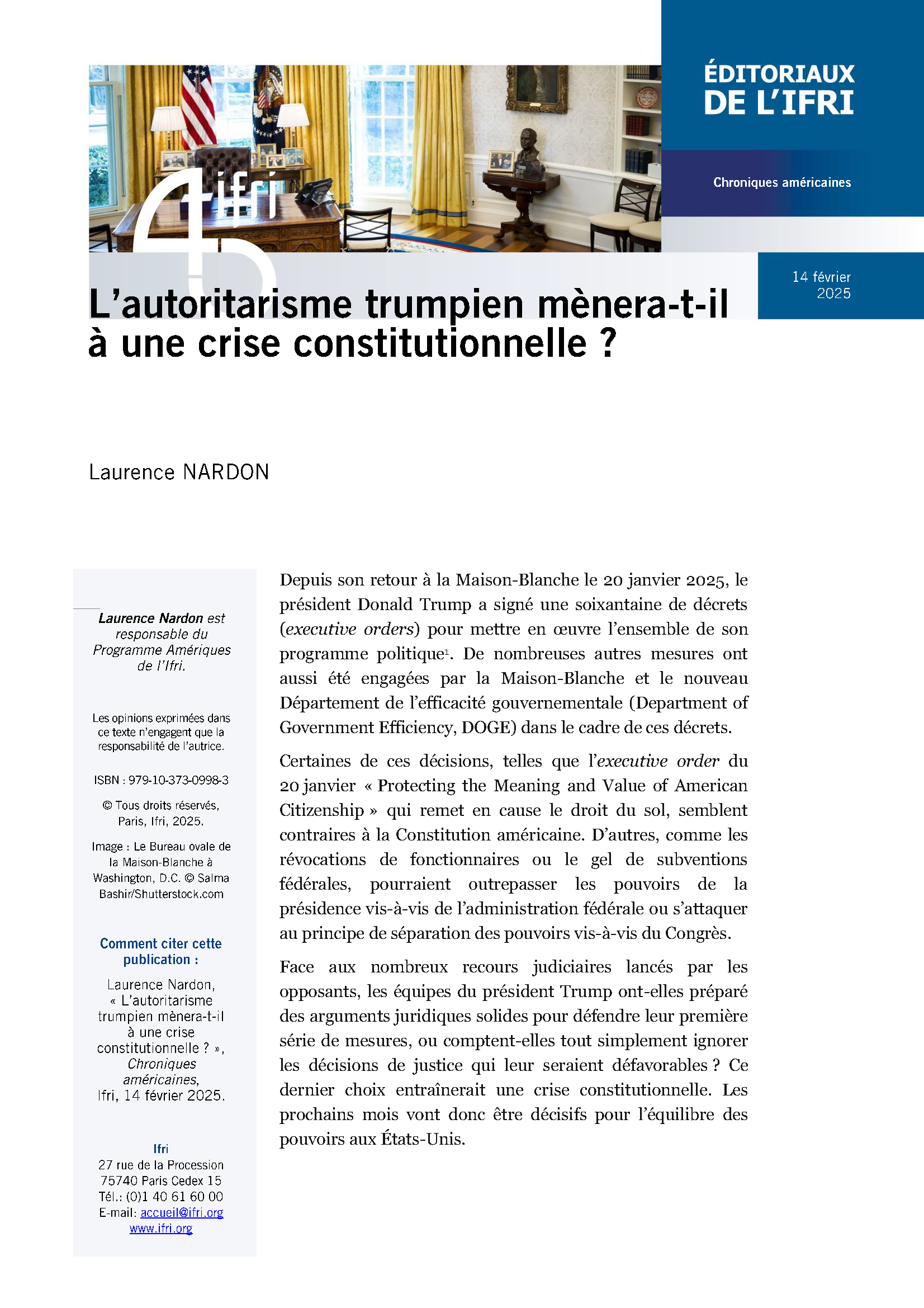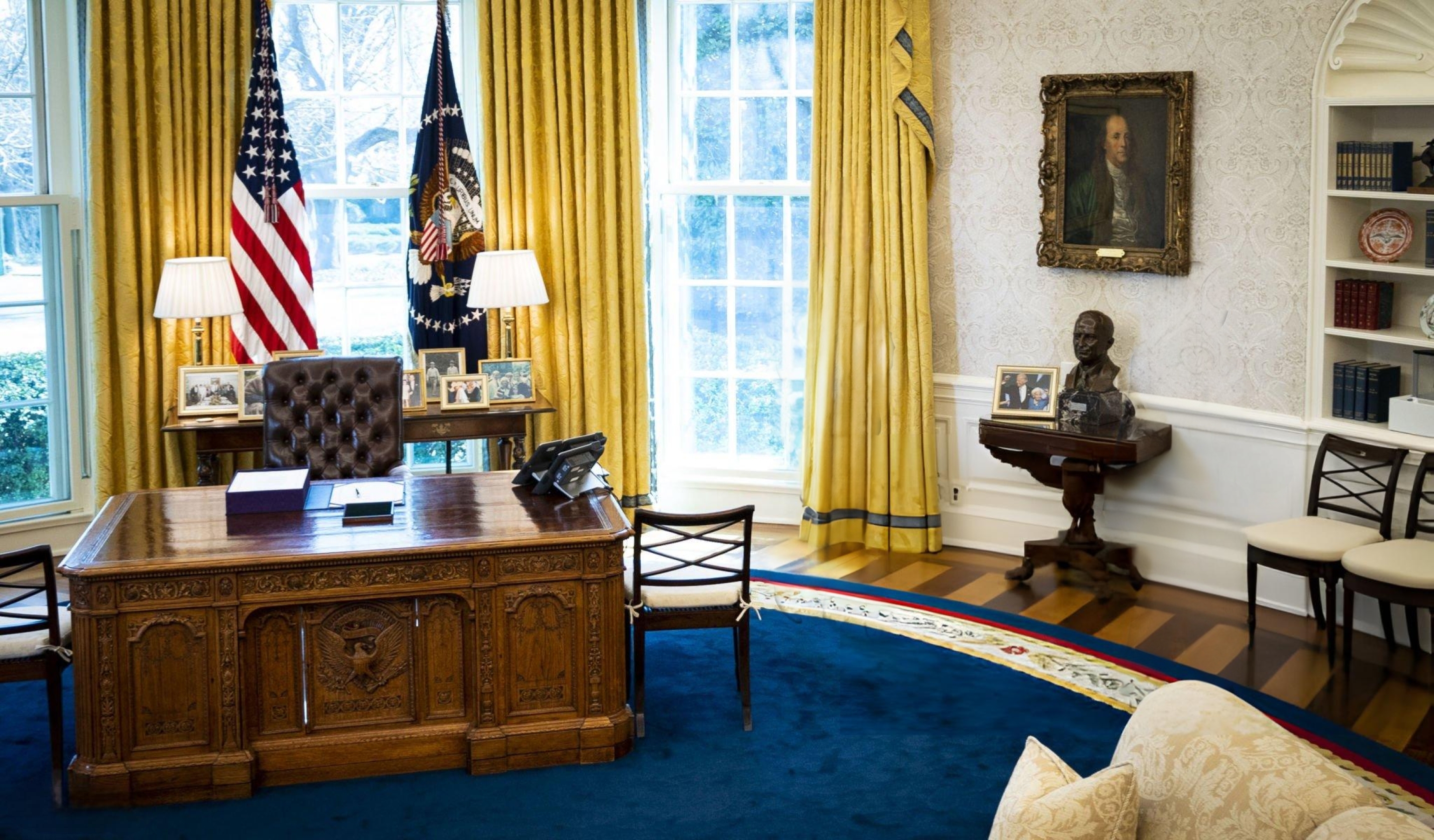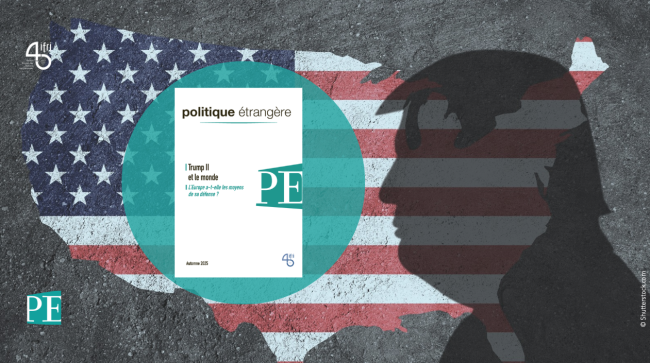Will Trumpian Authoritarianism Lead to a Constitutional Crisis?

Since his return to the White House on January 20, 2025, President Donald Trump has signed around sixty executive orders to implement his political agenda. Numerous other measures have also been introduced by the White House and the new Department of Government Efficiency (DOGE) as part of these orders.

Some of these decisions, such as the January 20 executive order 'Protecting the Meaning and Value of American Citizenship,' which challenges birthright citizenship, seem to contradict the U.S. Constitution. Others, like the dismissal of officials or the freezing of federal grants, could overstep presidential authority concerning the federal administration or undermine the principle of separation of powers in relation to Congress.
In light of the numerous legal challenges filed by opponents, has President Trump’s team prepared strong legal arguments to defend their first set of measures, or do they simply intend to ignore any unfavorable court rulings? The latter choice would trigger a constitutional crisis. The coming months will thus be crucial for the balance of power in the United States.
This editorial is only available in French.

Available in:
Themes and regions
ISBN / ISSN
Share
Related centers and programs
Discover our other research centers and programsFind out more
Discover all our analysesBrazil One Year Away from the October 2026 General Elections
Brazil’s general elections will be held on October 4, 2026, to elect the president, vice-president, members of the National Congress, governors, deputy governors and state legislative assemblies. For the presidential and gubernatorial elections, a second round will be held on October 25 if no candidate obtains a majority of the votes in the first round.
Trump II: The Clash of Ideologies
The second Trump administration brings together a number of very different, even opposing, ideologies: far-right populism, the reactionary Christian right, paleolibertarianism, and technolibertarianism. The most visible measures taken since Donald Trump's return to the White House have been populist in nature, with the president's authority strengthened, checks and balances weakened, a form of identity politics embraced, and economic nationalism implemented.
Water in Mexico: an Emergency that Will Wait
Access to water is already and will become increasingly problematic for Mexican economic actors due to the progressive scarcity of the resource resulting from climate change, a geographical distribution that does not coincide with that of the population or economic activity, and management that has so far been far too lax.
Donald Trump v. the States: the Case of New York
While the disruptive policies of the second Trump administration are being implemented at the federal level and on the international stage, they are also being felt in the federal states and major cities across the country. In the spring of 2025, several cases involving the state and city of New York demonstrate that the president’s attacks on environmental protection, the separation of powers, freedom of speech, etc., are also being carried out at the local level.












